After the liberation of the South in 1975, many new place names were born throughout the country. We can mention here a series of provincial names from North to South such as Hoang Lien Son, Ha Son Binh, Ha Nam Ninh, Nghe Tinh, Binh Tri Thien, Nghia Binh, Phu Khanh, Song Be, Hau Giang... It is a combination of two or three old provinces.
Thuan Hai was no exception. The three provinces of Ninh Thuan , Binh Thuan, and Binh Tuy were united under the new name Thuan Hai. During the resistance war against the French colonialists, this place belonged to Inter-Zone Five. During the resistance war against the American imperialists, it belonged to Zone Six. The key leadership team of Thuan Hai at that time were mostly people from the war zone. Secretary of the Provincial Party Committee Le Van Hien, Deputy Secretary Tran De, and Chairman of the Provincial People's Committee was Mr. Tran Ngoc Trac. In that "trio", only Mr. Tran Ngoc Trac was a "real" local - from Tuy Phong, Binh Thuan - a sunny and windy land famous (to this day) as "dry, difficult, miserable" in the whole country.
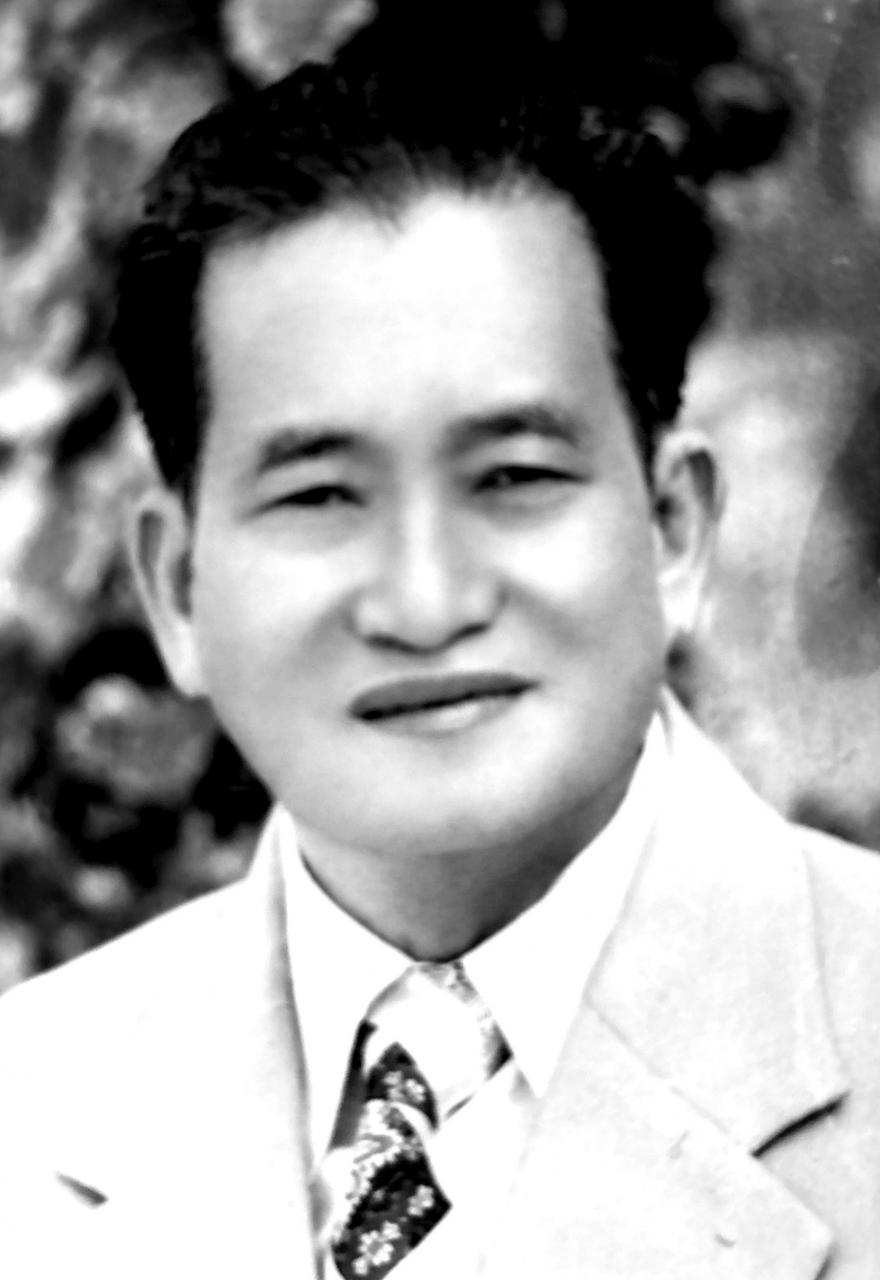
Mr. Tran Ngoc Trac had a not-so-peaceful childhood, if not to say too unfortunate. He was born in 1924 in his mother's hometown of La Gan, Binh Thanh. His father came from Long Huong, a neighboring commune, to get married and live with his wife's family. At the age of 14, his mother suddenly passed away when he was just over thirty. From a boy who was pampered by his mother, he now has to do many jobs to earn a living and support his elderly grandparents, such as selling candy, orange cakes and fishing for hire. After his wife died, his father returned to Long Huong to get married and have children. Then his grandmother and grandfather passed away one after another. Three mournings in just four years fell on a boy. With no relatives left, at the age of 18, he had to return to his father in Long Huong. Returning to his father, he must not forget his mother - he told himself - and had the date of his mother's death (February 7) engraved on his arm so that he could see it every time he rolled up his sleeve. The date of his mother's death followed him for the rest of his life. Later, some people maliciously called him a tattooed revolutionary. They didn't understand him.
In Long Huong, his family wanted him to get married so that someone could help with the housework, but he refused. His father's second wife worked as a midwife, so there were often people coming to give birth. In addition to helping his father as a barber, he also had another job: carrying water for women who had just given birth to bathe and wash. He accepted everything. At that time in Long Huong, only well-off families could afford to build a pond (tank) to store rainwater for year-round use. Otherwise, they had to go quite far to get it. Long Huong people often went to Binh Thanh to fetch water. Most of them were women and girls. Young men of 17 or 18 years old like him were rare. But he thought differently. Carrying water to return to La Gan, near his mother's and grandparents' old house, to relive the peaceful years of his childhood, to meet friends of the same age. Carrying water to stand on a high slope and have a panoramic view of La Gan. From Co Thach Pagoda, the seven-colored stone beach, to the head of the cape, where in the dry season flocks of cranes fly back, turning the beach white…
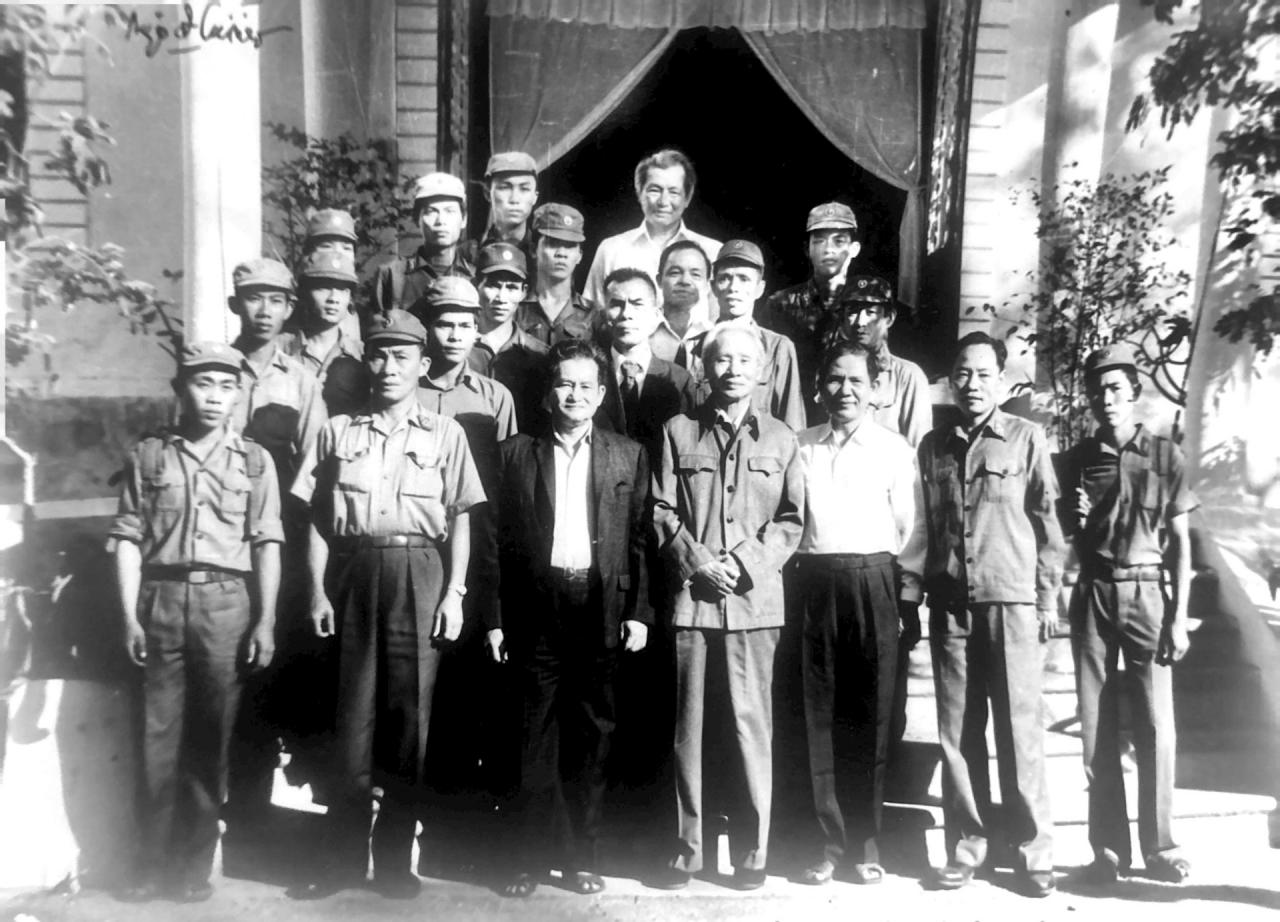
Then the revolutionary movement in Tuy Phong attracted him. From a patriot, he gathered young people to perform plays such as Vo Tanh burning himself, Co Loa citadel (poetic drama), Trung Vuong, Shadow of Lam mountain (reformed opera)... in which he was both director and actor to raise money to help the starving people in the North and to help the organization to spread the national language. He was also the one who brought a petition to Binh Thuan province to sue the Tuy Phong district chief.
It can be said that the revolution came to Tuy Phong like a fish to water. He was enthusiastic about his activities. In 1946, he was admitted to the Party (in Binh Thanh, his mother's hometown). In 1947, he officially left the locality and went to Phan Thiet to work under the identity of Ba Phuoc - a varnisher. When he was exposed, he went to the base in Ba Hon to continue directing the Phan Thiet revolutionary movement as the Chairman of the Viet Minh and Secretary of the City Party Committee.
1947 was also the year he had a quite famous love poem - Separation (printed in his later poetry collection Sea Wind, Thousand Fragrances).
Afraid of losing lips, searching for lips endlessly
Smooth salty tears of separation
The earth rotates slowly
Morning! I'll be leaving in a few minutes.
You! You're not the only one who lost.
The country is full of grief and sorrow.
In the depths of the stars the silhouette is dim
You! My homeland silently lights the way.
But perhaps the war did not allow him to become a professional poet (?)
In 1949, the reorganization transferred him to Dong Nai Thuong, where he became the Chairman of the Viet Minh and then Secretary of the Provincial Party Committee. In 1955, he participated in the Inter-Zone Five Assembly Council in Binh Dinh.
In the 10 years in the North, he worked in the education sector. From the Board of Directors of the Central Workers and Peasants Supplementary School to the Principal of the Dong Trieu Workers and Peasants Cultural Supplementary School, and a member of the Party Executive Committee of the Ministry of Education. He always completed his tasks excellently. In 1964, he returned to the Southern battlefield. In Zone 6, he held the positions of Deputy Secretary of the Tuyen Duc Provincial Party Committee, Secretary of the Da Lat City Party Committee, Member of the Zone Party Committee, Chief of the Zone Party Committee Office, Chairman of the Da Lat City Military Management Committee. After liberation, he never thought of staying in Da Lat, Lam Dong - where he had been attached throughout the two resistance wars - but returned to his homeland. One day, he went from the sea to the forest. Now it was the opposite - from the forest to the sea.
Returning to his hometown, he went to Binh Thanh, La Gan, wading through the sparse forests, the white sand fields full of cactus thorns, dragon tongue thorns. Accompanying him was his father. Finally, he reached his mother's grave after nearly thirty years of separation. His father said regretfully: Maybe your mother was angry with me so she didn't let me see the grave. As for him, he stood still, moved and speechless. I wonder what he was thinking at that time... At this point, perhaps many people will understand why his and his children's resumes all listed Binh Thanh as their hometown.
When Thuan Hai province was established, he served as Chairman of the provincial People's Committee for two consecutive terms and was a National Assembly delegate for the 6th and 7th terms. Many people probably know about that period. I will not tell it here. But there is one story that needs to be informed so that everyone can understand more about him. That was in the early 1980s, the organization wanted to send him to Hanoi to be the head of a state agency, but he refused, citing his old age and his desire to stay and build his homeland. In his heart, he did not want to leave his homeland again.
In 1988, he officially retired. Returning to normal life, he returned to writing, literature, and joined the Bong Vong group to compose poems with a group of old friends. But the most profound impression during this time was his participation in the project Binh Thuan Province Geography as co-editor (with To Quyen and Phan Minh Dao), he worked with all his understanding and responsibility for his homeland.
It was not until 1992 that he published his first collection of poems – also his only collection of poems – Sea Wind, Thousand Fragrances. Poet Phan Minh Dao commented: “Thu Lam’s poetry is passionate, full of the scent of sea breeze, comradeship, humanity, and homeland.”
Let me say more about the pen name Thu Lam. The name Thu Lam was used by him after moving from Phan Thiet to Dong Nai Thuong and throughout the following years. A son of the sea, from here on he was continuously attached to the mountainous region. Therefore, many people only know his name as Thu Lam. Thu Lam is in Dong Nai Thuong. Thu Lam is in Da Lat, Lam Dong. Teacher Thu Lam is at the Workers and Farmers' Cultural Supplementary School. According to him, the two words Thu Lam, in addition to meaning autumn forest, also have another meaning: going to do revolutionary work.
Surely somewhere far away, poet Thu Lam is looking at us and laughing heartily.
Source


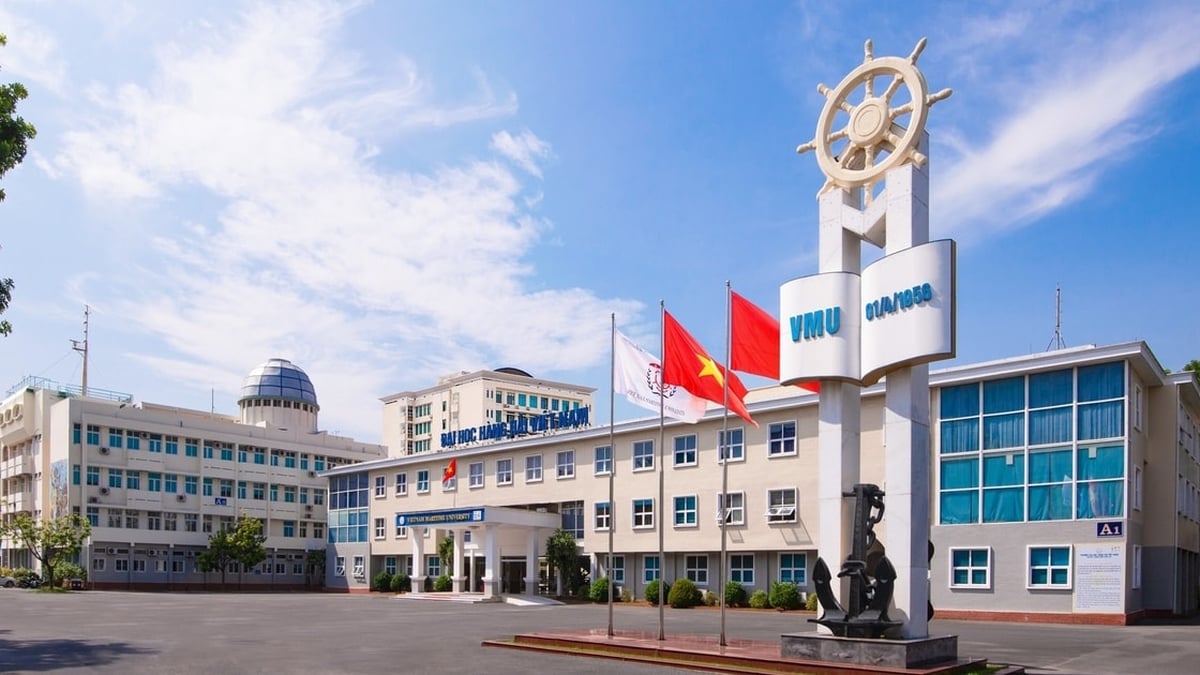
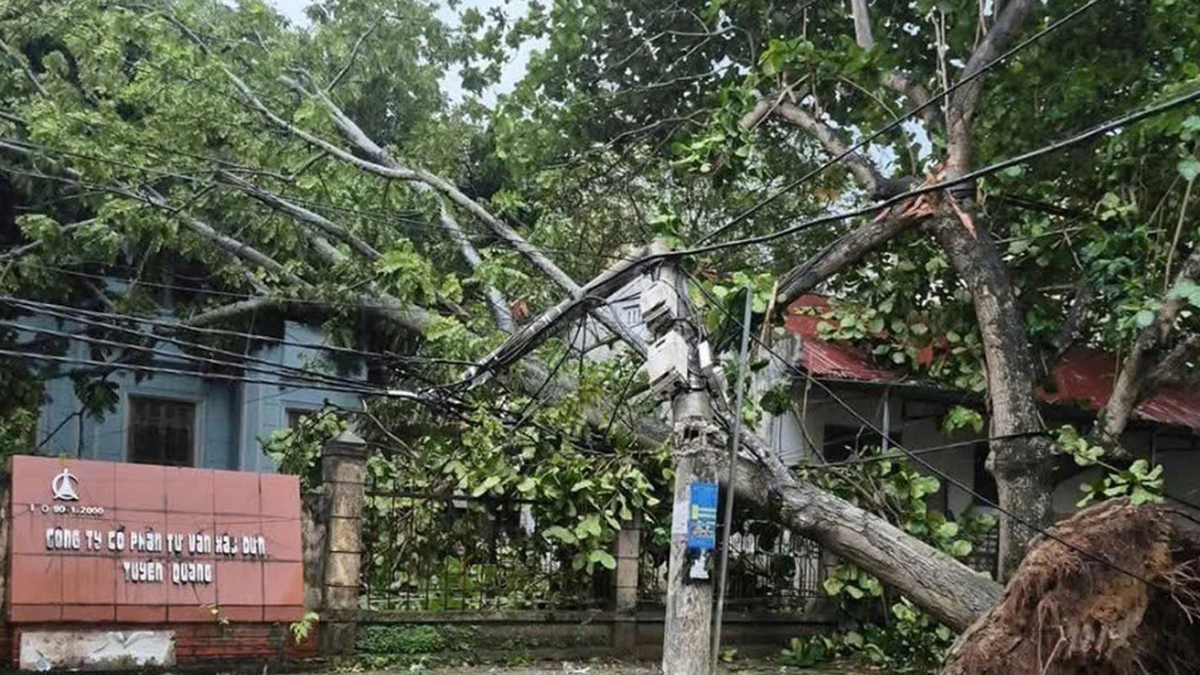
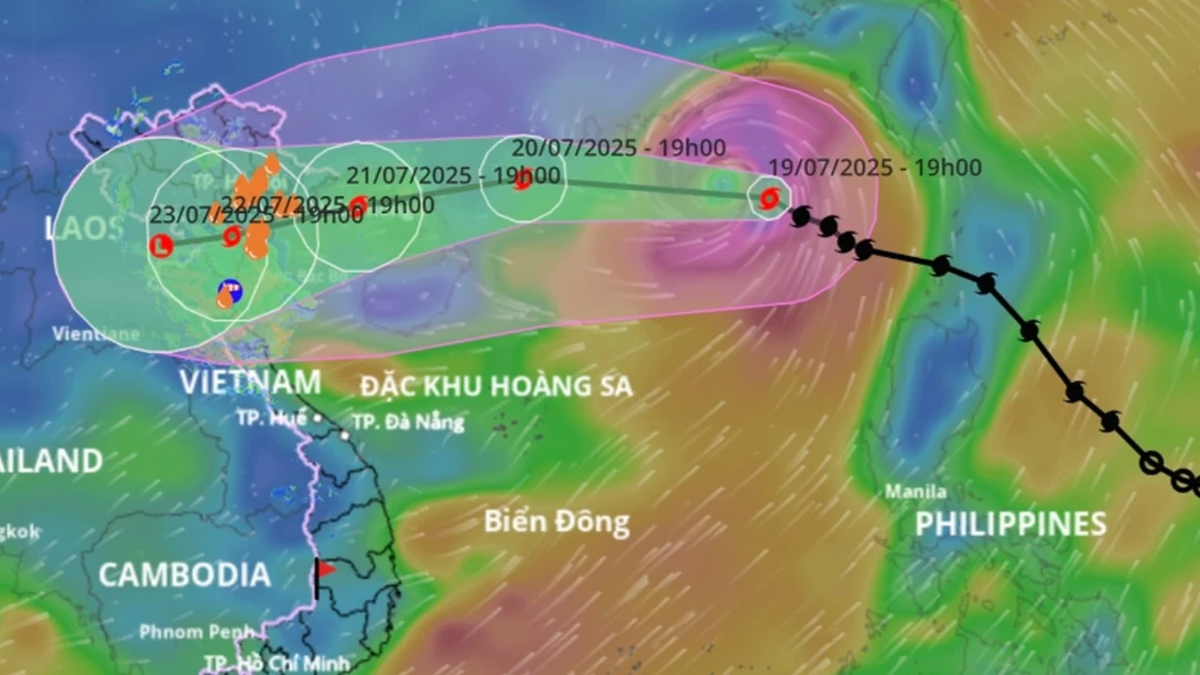
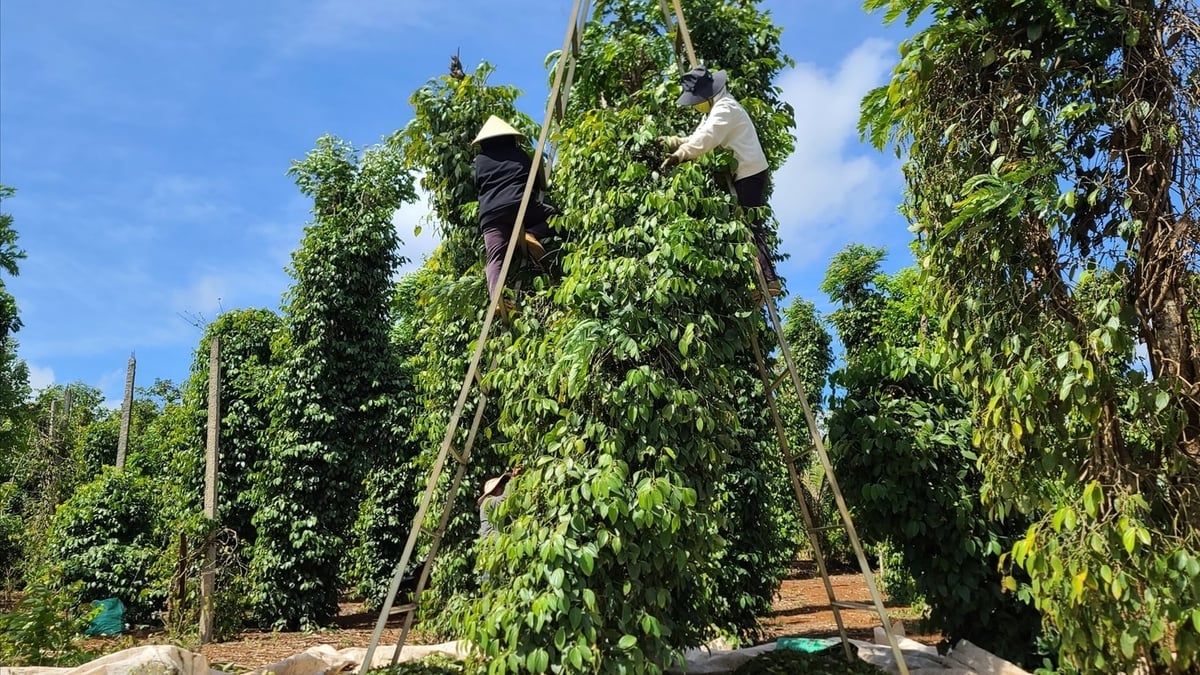
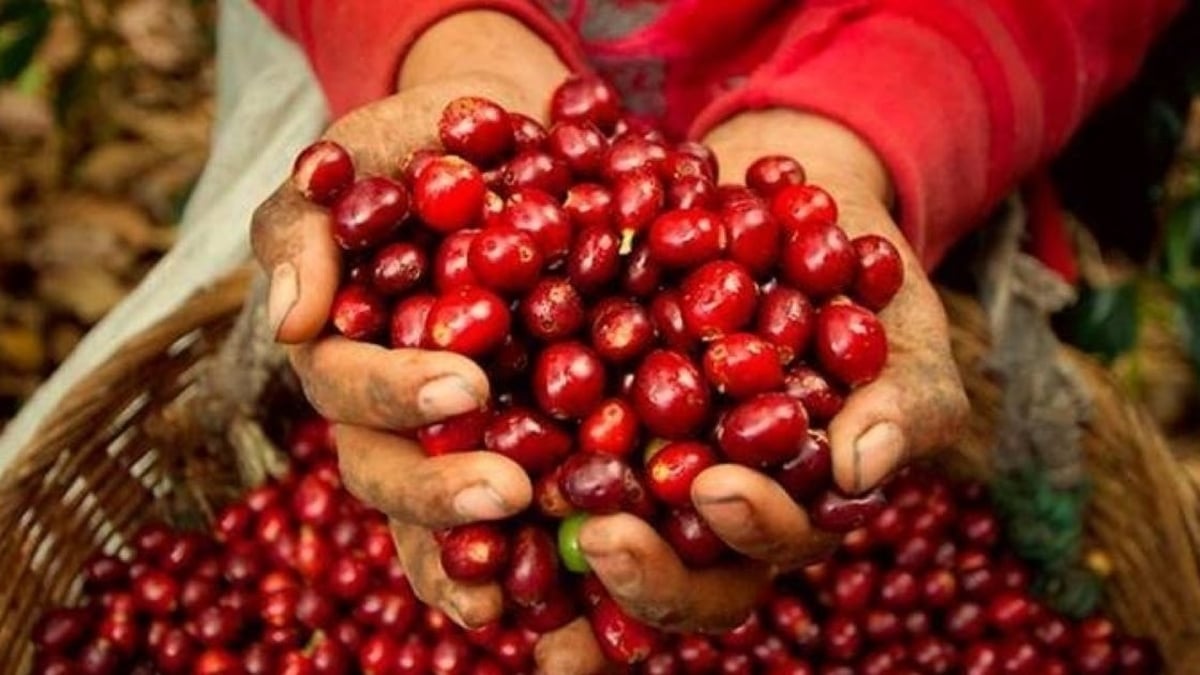
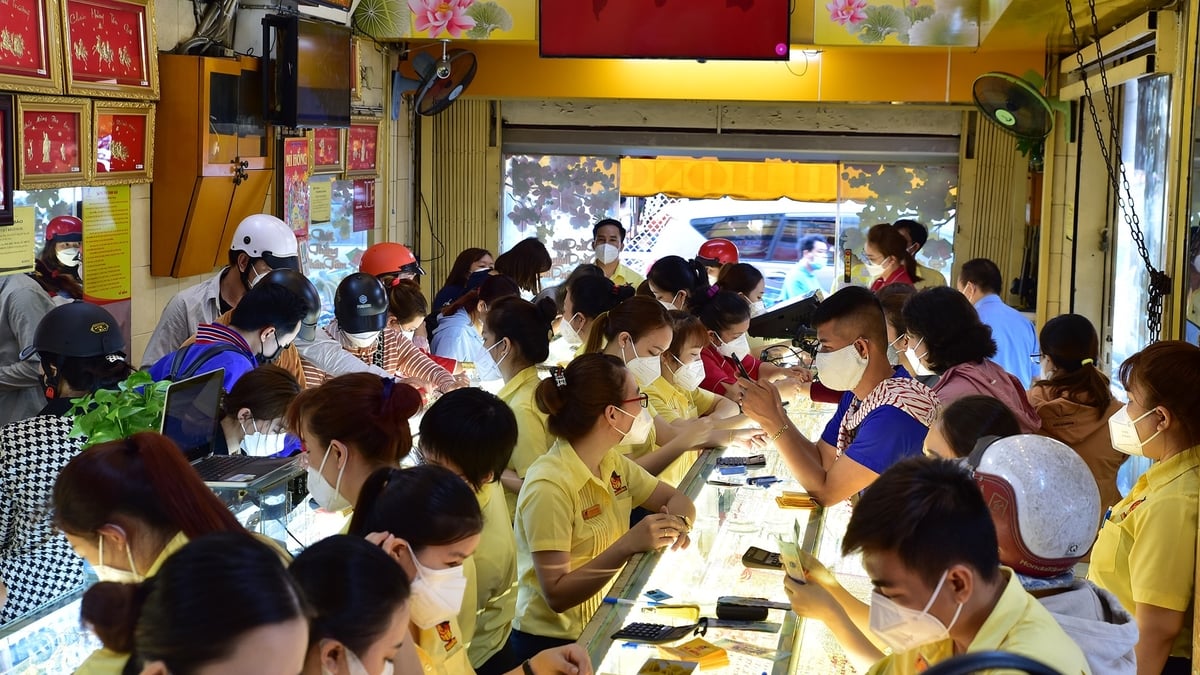

























































































Comment (0)